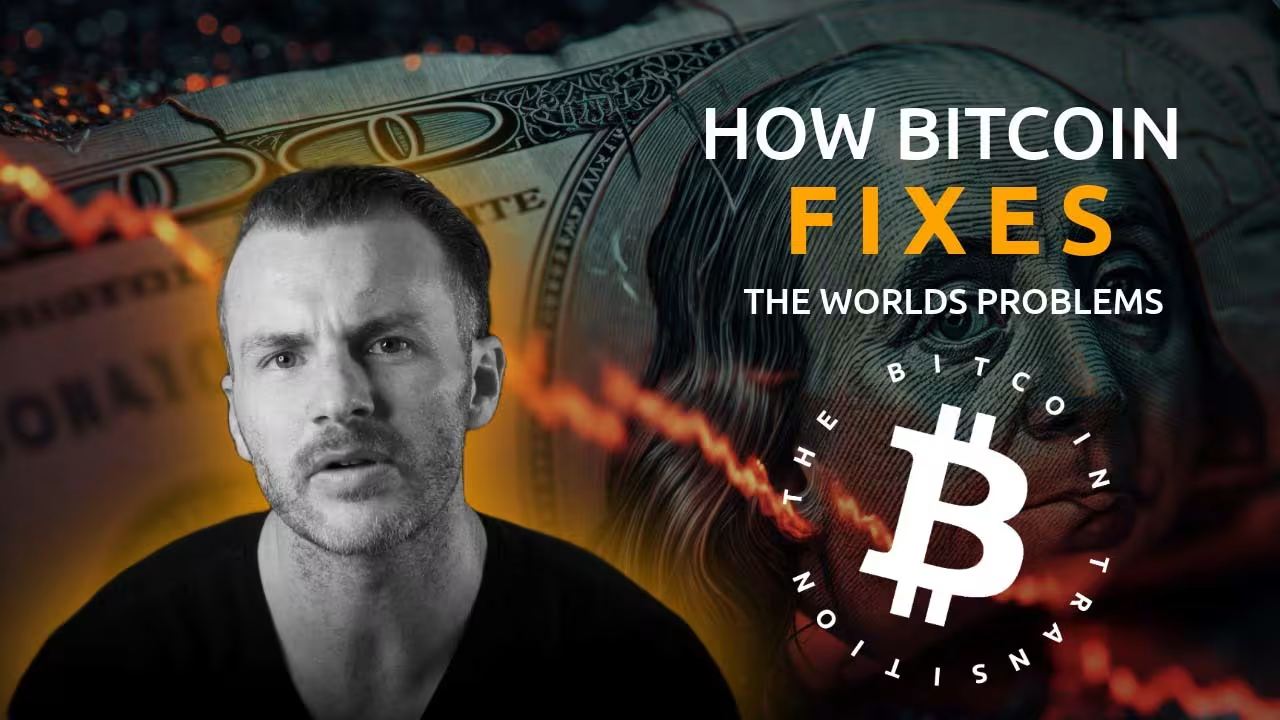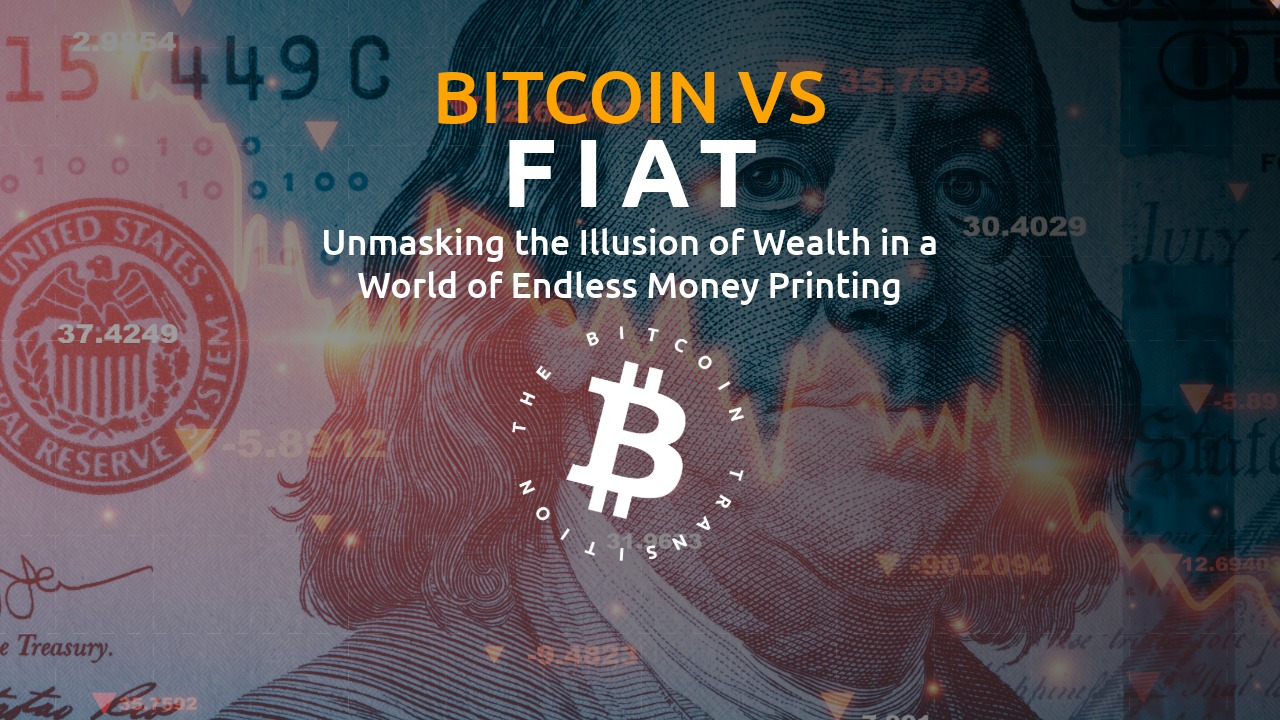The Bitcoin Standard: A New Economic Paradigm
The Bitcoin Standard: A New Economic Paradigm

Introduction
Imagine a world where money is no longer manipulated by governments or central banks. A world where inflation no longer erodes savings, taxation is transparent, and businesses thrive without the constant burden of debt. This is the promise of a Bitcoin Standard—a monetary system built on scarcity, self-sovereignty, and economic efficiency. In this article, we will explore how such a system would reshape business operations, investment, taxation, and the broader economy, particularly in an era where AI and robotics are accelerating deflation.
The Foundation of a Bitcoin Economy
A Bitcoin Standard means that Bitcoin becomes the primary unit of account, medium of exchange, and store of value. Unlike the current fiat system, which relies on inflation and debt issuance to sustain economic activity, Bitcoin operates on a fixed supply of 21 million coins. This scarcity enforces fiscal discipline at all levels of society, from individuals to corporations and governments.
Business Operations Under a Bitcoin Standard
1. Pricing and Transactions
Businesses would price goods and services in Bitcoin rather than fiat currencies. Since Bitcoin is divisible into 100 million satoshis, transactions of all sizes would be feasible. Prices would become more stable over time as the volatility associated with Bitcoin diminishes due to widespread adoption and reduced speculative trading.
2. Working Capital and Treasury Management
Under a Bitcoin Standard, businesses would hold Bitcoin on their balance sheets as a long-term store of value. This would eliminate the need to hedge against inflation by constantly reinvesting profits into speculative assets. Instead, businesses could focus on organic growth, reducing dependency on debt financing.
3. Wages and Salaries
Employees would be paid in Bitcoin, with contracts denominated in sats rather than fiat. Over time, wages would appreciate in real terms as productivity increases, and deflation lowers the cost of living. This would allow workers to accumulate wealth rather than lose purchasing power to inflation.
Investment and Capital Formation
Investment in a Bitcoin economy would look very different from today’s debt-driven model.
1. Equity-Based Financing
Since debt financing would be less attractive in a deflationary economy, businesses would raise capital primarily through equity issuance. Investors would prefer to fund businesses with real productivity and long-term value rather than speculative ventures reliant on fiat debasement.
2. Bitcoin as Collateral
For businesses or individuals needing loans, Bitcoin would serve as pristine collateral. Since Bitcoin’s supply is fixed, lenders could issue Bitcoin-backed loans with confidence that their collateral would not be devalued over time. Unlike today’s fractional reserve system, loans would be issued on a full-reserve basis, ensuring financial stability.
3. Venture Capital and Innovation
Venture capital would still exist but with a stronger focus on fundamentals rather than short-term hype. Businesses would need to demonstrate real-world utility and efficiency to attract Bitcoin-denominated investments.
Taxation in a Bitcoin Economy
Under a Bitcoin Standard, taxation would shift away from complicated income and capital gains structures toward more transparent and minimal taxation methods.
1. Direct vs. Indirect Taxation
Since governments would no longer be able to print money to fund deficits, taxation would need to be collected efficiently. A Bitcoin economy would favour consumption-based taxes such as sales taxes or value-added taxes (VAT) rather than income taxes. This would encourage savings and long-term investment rather than consumption-driven debt cycles.
2. Smart Contract Tax Collection
With Bitcoin’s open ledger and smart contract capabilities via layers like the Lightning Network, taxation could be automated and transparent. Businesses could remit taxes directly through programmable payments, reducing tax evasion and administrative overhead.
3. Reduced Government Spending
Since governments would be forced to operate within their means, large bureaucracies, entitlement programs, and inefficient spending would shrink. Public services would likely become more privatized or community-driven, increasing efficiency.
Real Estate and Financial Markets
1. Real Estate Pricing
Without inflationary pressures artificially driving up asset prices, real estate would become more affordable. Housing markets would operate on a more natural supply-and-demand basis rather than being distorted by artificially low interest rates and speculative investment.
2. Stock Market Evolution
Under a Bitcoin Standard, stock markets would be driven by actual business performance rather than central bank interventions. Stock prices would better reflect company fundamentals rather than being artificially inflated by monetary policy.
3. Debt Markets
Government bond markets would collapse, as sovereign debt issuance would no longer be viable without a central bank manipulating interest rates. Instead, private lending markets would emerge based on full-reserve banking principles.
Retail, Consumer Goods, and Circular Economies
1. Bitcoin-Only Businesses
Businesses would increasingly adopt Bitcoin-only models, avoiding fiat entirely. This would lead to the rise of circular economies where Bitcoin is used for daily transactions, from groceries to car purchases.
2. Consumer Behavior
With a deflationary currency, consumers would be more selective about spending, leading to more thoughtful and efficient economic activity. Disposable consumerism would decline in favour of high-quality, durable goods.
3. Global Trade
Bitcoin’s permissionless and borderless nature would enable seamless global trade without the inefficiencies of foreign exchange markets and currency manipulations.
The Role of AI and Robotics in a Deflationary Economy
As AI and robotics drive automation across industries, costs of goods and services will decline. Under a fiat system, this deflationary pressure is counteracted by money printing and forced inflation, but in a Bitcoin Standard world, it would lead to broad-based prosperity rather than financial crises.
1. Lower Cost of Living
Automation would make food, energy, and manufactured goods cheaper, aligning with Bitcoin’s deflationary nature. People would work fewer hours while maintaining or improving their standard of living.
2. Productivity Gains
Businesses would reinvest productivity gains into innovation and efficiency rather than using excess profits to chase speculative asset appreciation.
3. Shift Away from Debt Reliance
Since AI and robotics reduce operational costs, businesses would need less capital to scale, further reducing reliance on debt-based financing.
Conclusion
A world operating on a Bitcoin Standard would be fundamentally different from today’s debt-based, inflation-driven system. Governments would be held accountable for their spending, businesses would focus on long-term value creation, and individuals would see their purchasing power increase over time. The transition may be challenging, but the end result is a more stable, efficient, and prosperous global economy.
As AI and robotics usher in a new era of deflationary abundance, Bitcoin provides the perfect monetary foundation to ensure that prosperity is shared rather than siphoned away by inflation and financial manipulation. The Bitcoin Standard is not just an alternative—it is the inevitable future of money.


